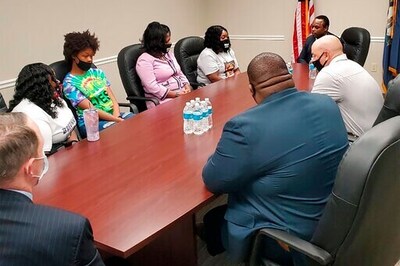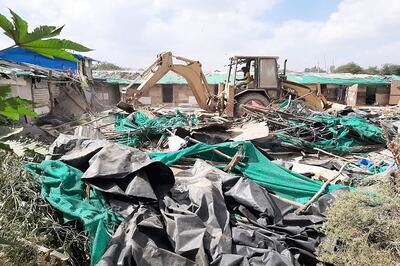
views
The performance of self-righteousness can be a dangerous thing. MJ Akbar's filing of a defamation case against Priya Ramani, the first of several women to accuse him of sexual harassment, could seriously backfire against him.
Perhaps, like many men, he believes himself to be unfairly targeted for mere ‘flirtations’, but he is taking a risk by subjecting himself to the judicial system. First, the testimonies of 20 women journalists will give him little room to hide. Second, recent high-profile judgments show that the judiciary is taking a stand in favour of human/women’s rights as understood by progressive western democracies. Third, the BJP is unlikely to champion his cause ahead of 2019 given that Akbar has no political base to speak of, does not figure in caste equations, and isn’t what could be called a Muslim leader either. In that sense, Akbar seems destined to go down in history as a #MeToo ‘success story’ (even though he is still an MP and continues to enjoy the benefits that follow).
But how many ‘success stories’ will #MeToo really see in India? And what do we define as success?
There is no doubt that #MeToo is powerful, cathartic, therapeutic, terrifying. It is reallocating the blame and shame that women have unfairly borne to where it really belongs. It is certainly not just a “hashtag revolution”.
Already, some heads are rolling in India and multiple inquiries have been set in motion. Men are squirming and grieving the demise of workplace “banter”. The minister for women and child development has made noises about a legal panel to address #MeToo cases and the National Commission for Women has announced a “dedicated email for work harassment complaints”.
However, India is a very different beast from its counterparts in the West, say the USA, where #MeToo has made a substantial impact, both in terms of attitudes towards sexual harassment and workplace consequences for it. According to Harvard Business Review, #MeToo in the West has led to a norms cascade: “a series of long-term trends that produce a sudden shift in social mores. There’s no going back”.
In India, though, we are a long way away from a “norms cascade”. Our particular brand of virulent, frighteningly stubborn patriarchy is just one tentacle of the monster that we must fight. India, as has been frequently noted, is many countries, straddling many centuries. The West is far more homogenous than we are in terms of power differentials, gender equality, religious and caste divides, regional differences, workplace and industry norms. We also score exceptionally high in “power distance”, defined as “the extent to which the less powerful members of institutions and organisations within a country expect and accept that power is distributed unequally”. This power distance exists between women and men, and also women and women.
Which brings us back to the question of the impact of #MeToo for working women in India. The answer: it depends on who the woman is and the industry she operates in. Educated, upper class and upper caste women have the greatest chances of benefiting from #MeToo. The odds go up for them if they work in corporate settings that have (or potentially have) redressal mechanisms and policies regarding harassment. The odds become worse in unstructured, nepotistic settings such as politics or family-run enterprises. Indeed, the growing corporatisation of Bollywood is one of the reasons why so many women are finally able to air the film industry’s ‘open secrets’. As for the unorganised sector, which employs more than 90% of India’s working women, the chances are even slimmer.
For every woman who speaks out, there are a thousand others who accept and even endorse the status quo. Many who would like to speak up do not have an email address to shoot off a mail to the NCW. They may not even know what a hashtag is.
Then there are the well-documented attitudinal and procedural issues with law enforcement and the judiciary: acts of sexual violence are severely underreported, victims are forced to carry the burden of proof, investigations often proceed at a snail’s pace, a large number of court cases stay in a state of suspended animation for years and the conviction rate for crimes against women stands at a measly 19%. Without a heavy-duty institutional overhaul of the legal system, women will continue to not only be denied justice, but be wary of seeking it. Even within the framework of #MeToo, many women — such as the accuser of filmmaker Vikas Bahl — are reluctant to approach the courts.
So, what next? In my opinion #MeToo needs to be made more inclusive. It needs to be cognisant of the 90% of working women in the disorganised sector, and also those who do not work outside their homes. By this I am not echoing the half-baked whataboutism of Tavleen Singh, who believes that outing workplace harassment somehow weakens the fight against other manifestations of sexual violence.
The shared truths of #MeToo are what make it powerful and the connections between women it can foster have the potential to change everything. In the words of neurobiology researcher Amy Banks, #MeToo “broke the cycle of painful isolation” that many women felt and allowed them “to find their voices and to reclaim their dignity”. Yet, Banks also notes that “for some, the movement has been more isolating”. In the Indian context, this applies to the women who don’t have an education, a computer, or even the awareness that they don’t have to live in fear. It applies to the women who work in our homes, the shop assistants who hand us trousers to try on, the nameless victims who populate the inside columns of newspapers. How do we join hands with them?
Given that the #MeToo movement in India is being galvanised largely by journalists, perhaps we should use our power and arsenal of hashtags to talk about #HerToo. Even as we continue to tweet about the men who have harmed us, can we not also add the stories of ‘other’ (or othered) women to our social media revolution? Can we not make their voices heard to the audiences/authorities that we have access to and they do not?
We don’t even have to try that hard. In the months that I’ve spent tracking news stories about sexual assault for the Media Action Against Rape newsletter, it has become clear to me that the media is really not doing such a bad job in covering incidents of violence against women: there are dozens of stories every day from virtually every part of India. There are stories of brutality, of justice denied, of systematic oppression. But even as these stories are being documented, they are generally dying a quick death. They are reported, but often unheard, untweeted. There is usually no push for follow-ups on social media. There is no sense of urgency of the kind we are seeing now. Outrage peaks for certain cases, but unlike #MeToo there is no mass indignation over the appalling trends in our country.
We — urban, upper class, educated women — have summoned indignation, urgency and focused activism for #MeToo, so why not for #HerToo? Why don’t we name and shame the cops who refuse to file rape cases? Or follow up cases of sexual assault at the workplace in the disorganised sector, like that of an army major accused of raping a domestic worker? Or call out sexist court judgments, where women are berated for waiting too long to file a complaint? Can we not band together to make this approach a conscious part of the movement? We may even make a real dent in our institutions and systems. Otherwise, all we’ll have perhaps a handful of stories about (much-deserved) comeuppance—and perhaps a few better behaved men in our offices who make nervous jokes about not wanting to risk closed room meetings with women colleagues.




















Comments
0 comment